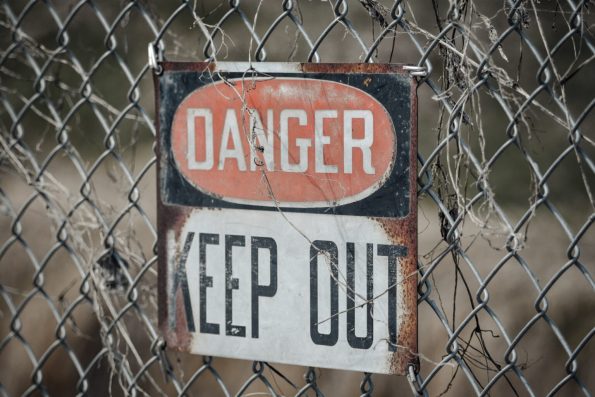Most organizations have employees who are required to work under hazardous conditions. These employees unlike others in the company are often compensated via Hazard Pay due to the nature of their jobs.
In Canada, these organizations have to pay employees who fall under the category mentioned above. This pay is termed hazard pay and this article will be reviewing what it entails.
What is Hazard Pay?
Hazard pay is an extra payment employer makes to employees who work under hazardous conditions. In addition, employers usually pay out hazard pay regardless of how much the employee earns or other compensation due to an employee from the organization.
So, if your work requires extreme manpower, causes discomfort/distress, or you work with dangerous tools/equipment, you may be entitled to receive hazard pay. However, there is no fixed amount of hazard pay set by the Canadian government.
What is this means is that employers decide how much an employee gets as hazard pay. In addition to there being no law mandating employers to pay hazard pay, the amount and conditions under which employers can make payment are solely dependent on the organization.
Nonetheless, employers calculate hazard pay as an employee’s regular rate of pay when calculating the employee’s overtime pay.
How to Get Hazard Pay
As mentioned above, there is no legal law binding hazard pay, that is, no law requires employers to pay hazard pay. However, most employers pay it as a benefit that usually is negotiable with unions. Nonetheless, some employers still offer hazard pay regardless of whether the employee belongs to a union or not.
Hence, if you are about to commence hazardous work, you must ask your employer about the organization’s policy. Alternatively, you should ask about the type of work you will be doing, the risk involved and the rate of pay.
By asking these questions, you will have an insight into the kind of work and wage you will be receiving. However, in a case where you were not briefed on the hazardous condition of your job and you suffer accidental injury or in severe cases death, your employer should be held accountable.
Hence, it is the responsibility of your employer to brief you before commencing any hazardous work. In addition, once you get a job offer, ensure to ask about hazard pay before you sign the papers.
Receiving Hazard Pay
You start receiving hazard pay once you meet the eligibility requirement. So, your employer will only pay for the hours you spent working in hazardous conditions.
For instance, if you work a six-hour shift and three out of those shifts were spent in an office while the other three were spent in a hazardous environment, you are only eligible to receive the three hours worked in a hazardous environment. Your employer will make the payment at the hazard pay rate the organization is using.
How Much is Hazard Pay?
Generally, there is no fixed amount for hazard pay. However, employers usually pay hazard pay in addition to regular hourly pay or salary. Mostly, this payment is in the form of an increased hourly pay rate.
Similarly, hazard pay has a pattern with overtime pay where employers pay employees a higher rate for working extra hours. However, in the case of hazard pay, employers pay more for working at a hazardous job.
Conversely, an employer can decide to apply hazard pay as a premium. For instance, an employer might agree to pay a 5% premium when an employee works under hazardous conditions. That is, the employee will earn 5% more than their regular hourly wage for working those hours.
Alternatively, an employer might decide to use a flat rate when paying hazard pay. For instance, if the organization decides on CA$300 monthly as hazard pay, that is the amount every employee who works within a hazardous condition will earn alongside their regular wage.
Hazard Pay and Overtime Pay
Employers must also consider overtime pay when providing hazard pay. That is, an employer must include it when determining what an employee’s regular rate of pay for overtime would be.
For instance, if your regular wage is CA20 per hour and you get CA$10 per hour more in hazard pay, your regular rate of pay for overtime would be CA$30 per hour. Note that is pay rate is applicable only if you are not eligible for any other compensation.
Hazardous Working Sectors
Below are some categories of hazardous sectors:
- Healthcare facilities
- Dangerous or extreme weather
- War zones
- Hostile locations
- Mines
- Construction sites
Hazardous Work
Below are some jobs that are considered hazardous:
- Logging workers
- Fishing
- Driver/sales workers and truck drivers
- Roofer
- Farmers, ranchers, and agriculture managers
- Frontline supervisors of construction trades and extraction workers
- Pilots
- Refuse collectors
- Structural iron and steelworkers
Conclusion
Hazard pay is extra compensation for employees who work in exceedingly dangerous or physically strenuous jobs. In addition, since there are no federal laws governing hazard pay, employers can decide how and when to pay.
Nonetheless, you can negotiate your pay since it is a compensation package. However, it’s best to negotiate your hazard pay through collective bargaining with a worker union.













1 thought on “What is Hazard Pay in Canada?”
Hello I am trying to get hazard pay for my construction workers. I can’t find the correct legal information. Could you please send me where you found the legal information stating the qualifications thank you very much for your time and consideration.